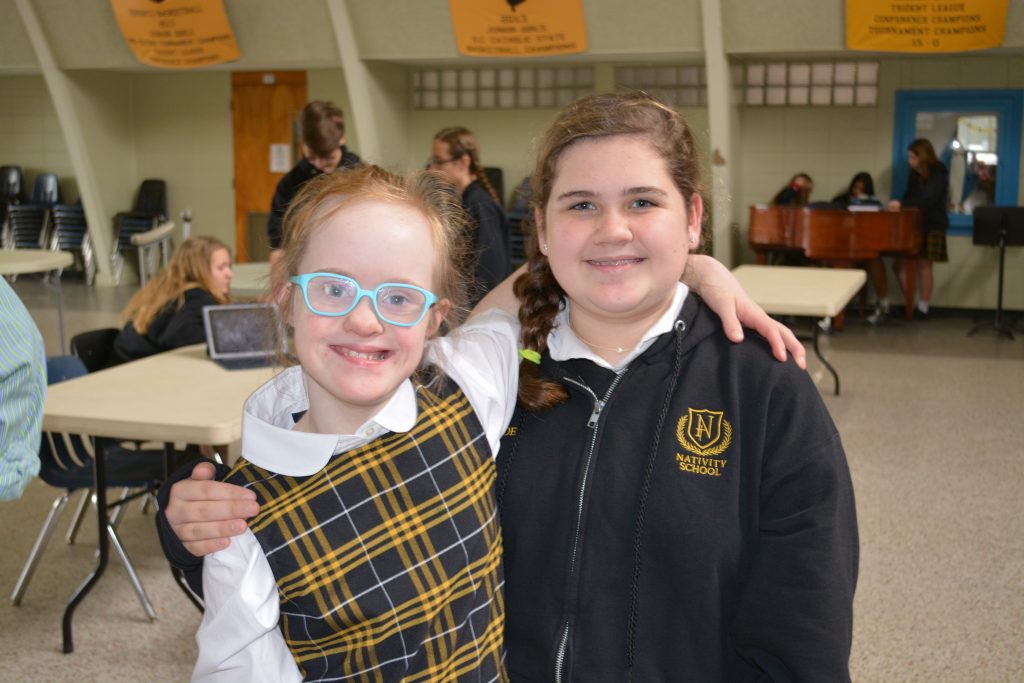There is a new kindergartner at our parochial school — a merry little girl that usually wears her hair in two rather uneven ponytails near the top of her head. I see her every Sunday, waltzing into Mass with her parents and three little brothers and sitting a few pews ahead of our family.
We love to watch the mother and father gently but firmly keep their squirming brood quiet. The young mother is so affectionate, and the father is able to catch a toddler in midair with one hand while tapping an irrepressible 3-year-old smartly on the head with the other.
What we like best is watching the pretty girl go up for a blessing, joining the communion line with her arms folded importantly over her chest. She marches up to the priest and looks up at him expectantly and seriously.
Blessing received, she stops on her way back to the pew in front of a statue of the Virgin Mary. There her seriousness leaves her. She gets down on one knee, smiles broadly at Our Lady, and kisses her fingers. Then she flings the kisses toward the statue, her arm making an extravagant arc and her lips blowing her love to heaven with all the breath in her body.
During all this, there is hardly an eye in the whole church that is not fixed on her, and if there is a heart that is not touched, it is a stony one. You see, the reverent little child has Down syndrome, and this makes her a walking, living illustration of the fact that God does not make “mistakes” and that absolutely no one is disposable.
As I mentioned, she just started kindergarten a couple of weeks ago, and she is already the darling of all the students. She is the first student with Down syndrome at the school, and it was, I’m sure, a carefully thought out decision, with many attendant considerations.
I spoke to our pastor about it, and also to the principal. While they were both happy to be able to please the good parents — faithful parishioners who greatly desire a Catholic education for all their children — what they find most satisfying is what the new kindergartner will bring the other students: what Pope Francis called an “education in the fullness of humanity.”
They are well aware that we here in the prosperous West live in a carefully sanitized world. Spectacular medical advances and a general prosperity never seen before in the long arc of human history have diminished the prevalence of disease and infirmity to the point where, unless we work in hospitals and nursing homes, most of us are hardly exposed.
Our eyes are no longer accustomed to physical defects and disabilities, and we have become afraid of them, even to the point of believing they make life “not worth living.”
The sad truth is that we live in a culture that has carefully culled out those considered imperfect before birth, for the “crime” of an extra chromosome or a missing limb. They are too great a burden for their families, we tend to think, and for the larger society.
When we watch the lovely girl throw kisses at Our Lady on bent knee in Mass on Sundays, our whole congregation is treated to a radically countercultural thought experiment. Maybe God’s purposes are greater than ours, nobler, farther-reaching.
Maybe “beauty” and “health” are larger terms outside of our narrow minds, with infinitely superior meanings in the higher realms.
Perhaps when we gain heaven, if we do, we will see the ones we called “unfortunate” striding before us in clouds of glory. In our school, the children will be treated to the best kind of education: in the dignity — and loveliness — of every member of the human family.

